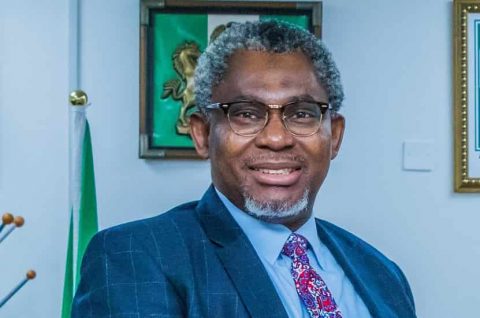Coal Mining Communities In Kogi, Benue Decry Environmental Pollution
African News, Featured, Latest Headlines, News, News Across Nigeria, News From The State, Uncategorized Friday, September 11th, 2020
Representatives of coal mining host communities in Kogi and Benue have, once again decried the increasing environmental, economic and health hazards posed by mining activities in their communities.
The group also accused the mining firm in the affected communities of flagrantly perpetuating environmental injustice against their people.
The representatives of the communities noted that it was important for the Federal Government to take the health and social well-being of the rural communities more seriously above the economic gain of the mining firms.
They spoke at a capacity building of coal mining affected communities on rights and environmental justice, organized in Abuja by the Global Initiative for Food Security and Environmental Protection (GIFSEP) with the support of 350 Africa, CSDevnet and other partners.
The participants are mainly community activists and stakeholders drawn from Benue and Kogi states where coal is currently being mined. They were trained in skills on security, campaigning, organizing, community mobilization, storytelling, digital campaigning and building relationships with the media and policy makers for rights and environmental justice in their respective communities.
They also shared their stories during the training, narrating their plight since the commencement of mining operations in their communities
In his remarks, the traditional ruler of Owukpa village in Ogbadibo Local Government Area of Benue State, Onoja John explained how mining began in the community in 2017, adding that no development came to his community as of 2018.
Onoja added that at a point he had to approach the mining firm and the officials claimed to have paid an undisclosed sum of money to Owukpa Development Association (ODA), thus neglecting the development of the host community.
He further narrated how he subsequently directed youths in the community to stop work at the mining site and how he was allegedly reported to the Benue State Police Command for questioning after which top traditional chiefs met.
“We dialogued and reached a resolution. The resolution has been disregarded by the company. I was even issued a query by the big chief. As I am talking, I wish I have a cover because my life might be at risk”, he said.
Speaking in a similar vein, a representative of Onupi community in Kogi State, Abdullahi Saidu, disclosed how the community was excluded from preparing an Environmental Impact Assessment (EIA), which led to the mining firm to present a fake EIA.
The inability of the mining firm to fulfill its obligations as contained in the Community Development Agreement (CDA), according to him, forced it to suspend operation and moved to Benue State.
“We mobilised our youths against them. We demanded to see the consent letter that gave them permission to commence mining in our village, so they just referred us to the paramount ruler.
“One thing about Dangote Coal Mining company is once they visit any mining location, they create enmity among the villagers. The next thing you see is conflicts among the opposition groups”, he added.
In his contribution, a representative of Awo-Akpali Community in Ankpa Local Government Area, also in Kogi State pointed out that Dangote Coal Mine Limited has commenced the construction of a health care centre and a block of primary school at the community after a story published by the International Centre for Investigative Reporting (ICIR).
He added that the construction of buildings which were started in April are however yet to be completed, noting that several efforts made by local actors within the state prior to the development had failed. He therefore urged the firm to ensure early completion of the projects.
While speaking with journalists at the venue of the event, the Executive Director of GIFSEP, Mr. David Michael Terungwa said coal mining had degraded the land and negatively impacted the environment as well as climate change.
“We cannot continue to degrade the land more than we have done, and this is exactly what coal mining is doing. Apart from the mining which is destroying the land, burning of coal is a major contributor to greenhouse gas emission which is responsible for global warming and climate change.
“So, we, as a country and as a continent, Africa, we have seen the impact now, the effect is already here with us, and it is not something of the future”, he stressed.
He observed that the way forward is to take steps to help people build resilience to climate change effects which are already happening.
“Already, there is poverty and with these effects, it means that we are not able to achieve the Sustainable Development Goals (SDGs). So, we must plant trees to at least reduce the effect of flooding. We must construct small dams to harvest water and reduce the rate at which water destroys the farmland.
“We need to farm better by advising people not to build their houses on flood plains. We need to create more awareness, most especially among the local farmers. They need to understand that this is a new trend, and it is not just going to stop now, it will continue”, he advised.
Mr Terungwa also harped on the need to tackle flooding frontally, adding that since 2010 when Nigeria witnessed massive flooding, the number of flood cases has kept increasing at an alarming rate.
“So, we need to find a way to deal with flooding. We also need to move away from rain-fed agriculture. As it is, many of the farmers that planted cannot predict when the rain will fall, unlike before now.
“But, if you are able to harvest water and make use of the dam we have, you will have water available to plant when you want to plant and harvest when you want to harvest or you can even farm all year round”, he further explained.
Generally, the effects of coal mining are widely acknowledged as a major contributor to global warming. During coal mining activities, according to experts, a number of greenhouse gases such as carbon dioxide, methane, nitrogen oxide and other heat-trapping gases are produced which remain in the atmosphere for several years once emitted.
Meanwhile, Nigeria holds large coal deposits from the East to the Northern parts of the country, estimated to be at least 2 billion metric tonnes. Out of 28 coal blocks identified across 12 states, Kogi State leads with 8 blocks while Enugu State has 6 blocks.
The Nigerian government has recently placed a high priority on utilising these resources to increase the country’s electricity generating capacity. With this, it hopes to revitalise the coal mining industry and expand power generation by attracting companies to develop these large coal resources and construct coal-fired generating plants that will connect to the nation’s electrical distribution grid.
Related Posts
Short URL: https://www.africanexaminer.com/?p=55717





















